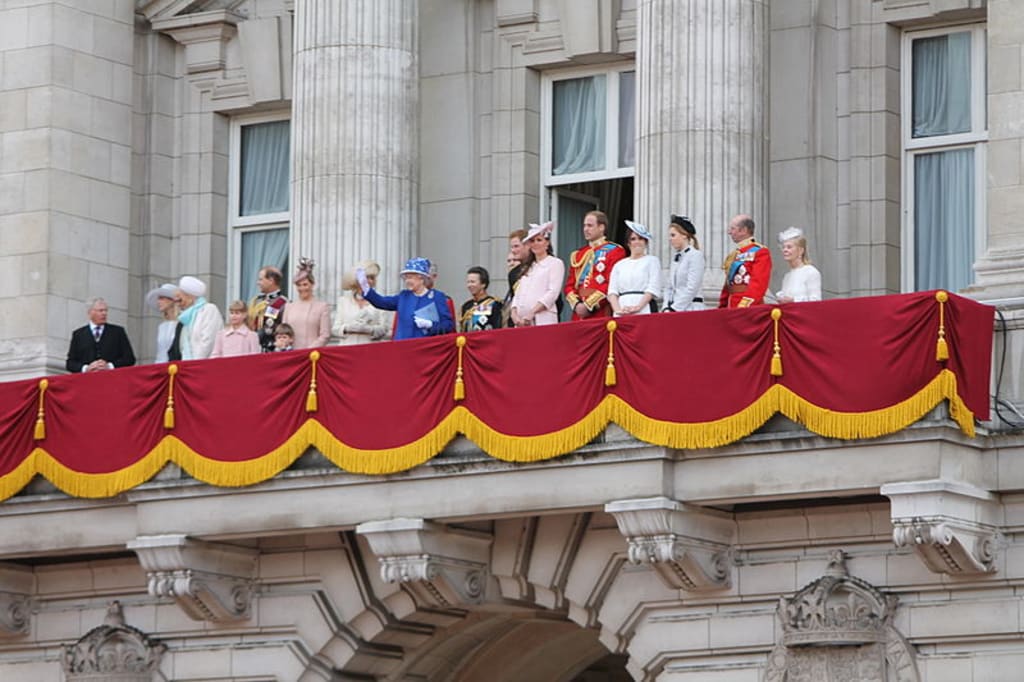The Royal Family: A Summer to Forget
The Problems with Our Monarchy

Accusations against Prince Andrew, Harry and Meghan’s war with the tabloids, and Boris Johnson deceiving the Queen: It’s been a somewhat tumultuous summer for the royal family. Usually detached from the nit and grit of journalistic controversy, this summer has seen all facets of the monarchy’s composition come under fire: Is the royal family above the law? Where should ultimate political power reside? As a country championing equality, is it right that one family is ‘more equal than the rest?’
I am going to use the three aforementioned events of the summer to analyse the bigger questions surrounding the royal family. I seek to discuss the philosophical inconsistencies, evaluate the societal quandaries, and attempt to answer the overarching questions. At this stage, I would like to point out that this is in no way a defamatory piece on the British royal family. I myself am ambivalent on the issue, seeking only to evaluate and discuss the bigger questions at hand. Furthermore, this article is in no way a speculative piece scrutinising and hypothesising the individual events of the summer. I am merely using the events of the summer to draw attention to the fundamental questions surrounding the British monarchy.
The Accusations against Prince Andrew: Are the Royal Family above the law?
Prince Andrew has recently come under scrutiny over his association with convicted paedophile Jeffrey Epstein. Virginia Roberts Giuffre, who was allegedly trafficked by Epstein, has claimed that she was forced to have sex with Prince Andrew as a 17 year old. Prince Andrew has repeatedly denied these allegations. I am not going to speculate what may or may not have happened, as my opinion would be completely baseless and possibly defamatory. I seek to address the wider assertion; that the royal family is above the law.
The Queen authorises all prosecution and legislation, therefore, in theory at least, she is quite literally ‘above the law’. She does not require a driving license, and is excused from presenting evidence in a court of law. Furthermore, civil and criminal proceedings cannot be taken against the monarch. In theory, the rest of the royal family are just regular citizens in the eyes of the law. Some people may argue that, in reality, this is not the case. One such example would be Prince Philip avoiding prosecution for a car crash that injured two women. Former roads policing chief Chris Spinks argued that the Prince would be treated ‘like any other driver’, however, Prince Philip was not prosecuted. Furthermore, members of the royal family cannot be arrested in civil proceedings, in the presence of the monarch, or anywhere near the palace. The royal family are exempt from Freedom of information laws, in the UK. This means, unlike politicians and civil servants, the royal family can carry out their business in total secrecy.
The royal family’s relationship with the law is somewhat juxtaposed: The Queen is in theory above the law, however, in practice, abides by the law. The rest of the royal family, in theory, should abide by the law, however, in practice, are seemingly above the law. The Royal website makes it clear that though ‘civil and criminal proceedings cannot be taken against the Sovereign,’ the Queen makes sure all her activities are ‘carried out in strict accordance with the law.’ It’s this principle that makes me uneasy. Am I saying that I’m worried that Queen Elizabeth will travel the country, breaking as many laws as she can? Absolutely not. Queen Elizabeth’s compassionate sense of regality is the epitome of British dutifulness. However, the fact that one person, selected only by birthright, is exempt from the law seems frankly ridiculous. Each generation we are playing a lottery, praying that the next monarch ‘chooses’ to abide by the law of the land.
Prince Harry and Meghan Markle vs The British Tabloids: The Responsibility of the Royals
In February, The Mail on Sunday leaked the contents of a private letter, written by Meghan Markle to her estranged father, Thomas. The Mail on Sunday did not pertain the letter illegally, rather it was leaked by Thomas himself. This action has prompted a stand-off between Harry and Meghan and the tabloid press. I do not wish to get bogged down discussing the ins and outs of press freedom, nor get sidetracked by the morality of Britain’s tabloid press. Rather, I want to evaluate if the royal family are entitled to privacy or not.
Questioning whether someone is entitled to their own privacy seems remarkable to say the least. Surely everyone is entitled to some degree of solitude? Furthermore, the general public owning the rights to someone’s private life is the most extreme example of commodification. With baby Archie now on the scene, and the backdrop of Harry’s own tragic experience with relentless paparazzi; it seems like Harry and Meghan’s wish for a private life is well justified. However, there’s slightly more to it than that.
Harry and Meghan have recently moved into Frogmore Cottage. Having received the property for free and both being multi-millionaires, they spent in excess of £2.4 million of taxpayer’s money renovating their property. Wanting privacy is a fair request, but when you are funded by public money it becomes a different matter. Especially, when both Harry and Meghan are millionaires in their own right, and theoretically could live without taxpayer handouts. Keeping their relationship private for so long, secrecy regarding baby Archie’s christening and Meghan’s refusal to appear in photos whilst at Wimbledon has further exacerbated tensions.
Undoubtedly, the summer has proved a PR nightmare for Meghan and Harry. They have come across as a couple who want all the benefits of royalty, without any of the responsibility. However, I don’t necessarily believe this is what was intended. At the base of all of this is a person deeply scarred by his mother’s death. A woman hounded, scrutinised and berated by the tabloid press. This considered, who can blame Harry for being overly protective of his family?
Boris Johnson lying to the Queen: Where should ultimate political power reside?
Boris Johnson’s prorogation of parliament was deemed ‘unlawful’ by the Supreme Court on the 24th of September 2019. Boris Johnson claimed prorogation was needed to allow the preparation of new laws ahead of the Queens Speech. However, the Supreme Court rejected this reasoning, implying prorogation was an illicit means to halt parliament debating Brexit. This essentially means Boris Johnson lied to and deceived the Queen. Without the intervention of the Supreme Court, it is entirely plausible that we would be hurtling towards a no-deal Brexit; essentially because the Queen signed off Boris Johnson’s prorogation request. This begs the question, should the ultimate political power of the land reside with a non-elected individual with no official political experience?
Queen Elizabeth’s power is largely ceremonial. The power to summon and prorogue parliament, sign off on new laws, and appoint titles are such examples. However, technically speaking, she does have significant political power. She has the power the fire the entirety of parliament, the last time a monarch did this was in 1830. The power of Royal Assent, though largely ceremonial, is an integral part of approving a new law. Queen Elizabeth can also reject new laws, however, the last monarch to do this was Queen Anne in 1708. One power that Queen Elizabeth has used, is the royal pardon. The royal pardon is the power given to the monarch to pardon criminals. Queen Elizabeth posthumously pardoned Alan Turing in 2013.
Queen Elizabeth also has to power the declare war and command the British Army. Though the last monarch to do this was King George VI in 1939, this amount of power for an unelected individual does seem counterintuitive to say the least. It’s apparent through the examples I have provided, that the monarchs use of these political powers have decreased over time. Is this because power has dispersed from the monarchy to elected parliament? Or because, through sheer luck, we have been bestowed with a compassionate monarch?
Though the summer of 2019 has raised several deep-seated questions regarding the power and responsibility of the royal family, it is important to examine the bigger picture. Britain’s system of Constitutional Monarchy has promoted democracy, peace, and prosperity since its inception. If we examine countries ruled by dictatorships, oligarchies or authoritarianism, it’s plausible to argue that we are lucky to have the system we have. Despite this, I do believe there are some intrinsic flaws with the monarchy. All the issues raised are not with individual members of the royal family, but fundamental issues with the institution itself. In a country championing equality, is it right that one family is inherently ‘more equal than others?’ Can we truly tackle inequality when our nation's figureheads are unelected? Can we legitimately promote democracy when the most powerful person in the country is chosen through birthright alone?






Comments
There are no comments for this story
Be the first to respond and start the conversation.